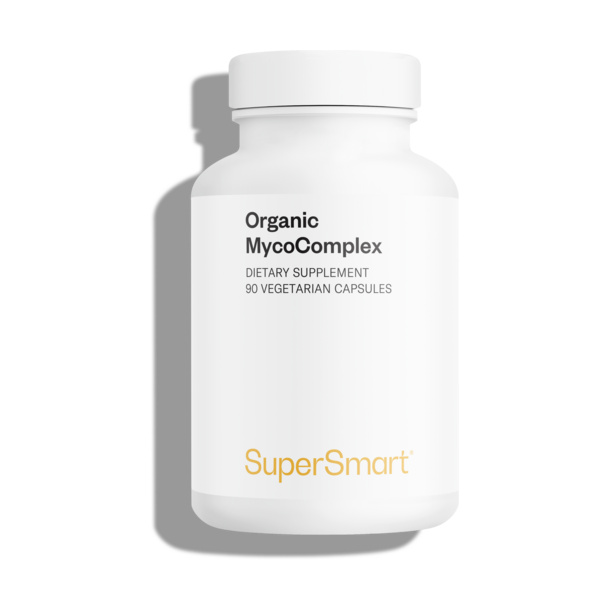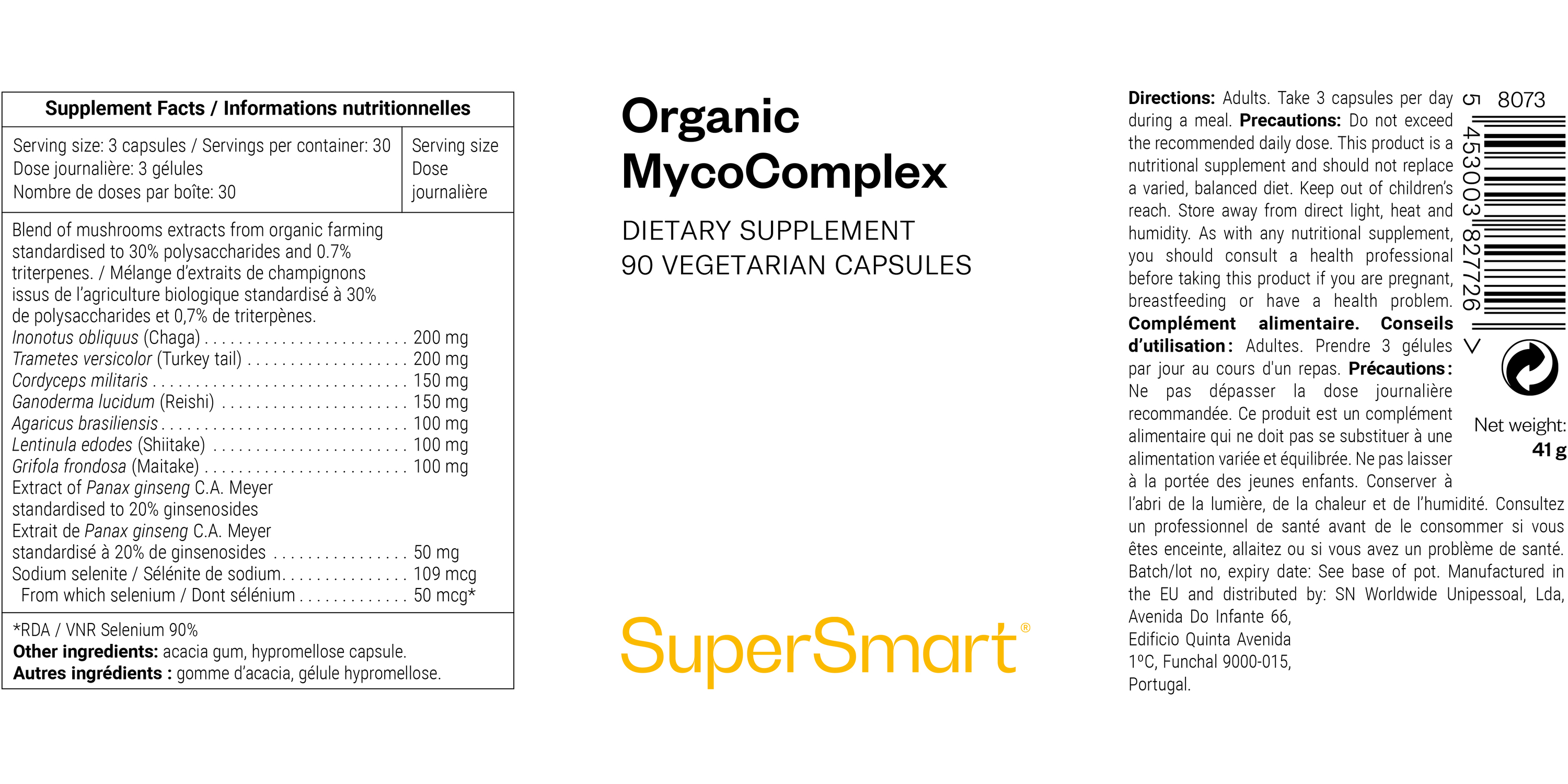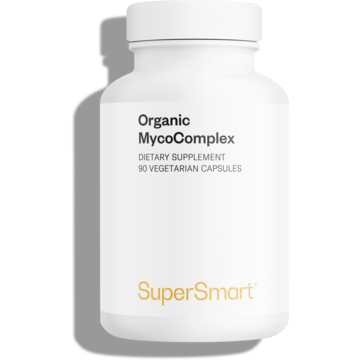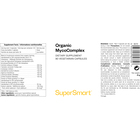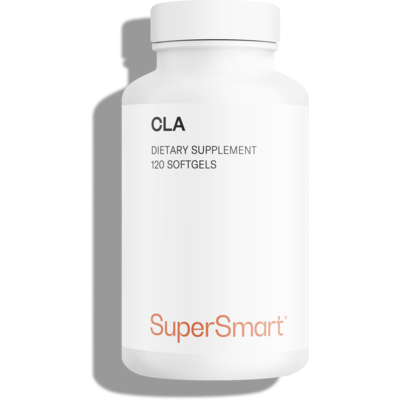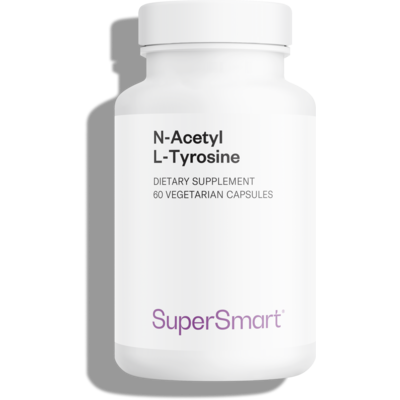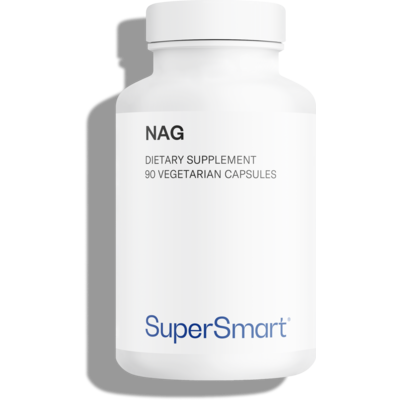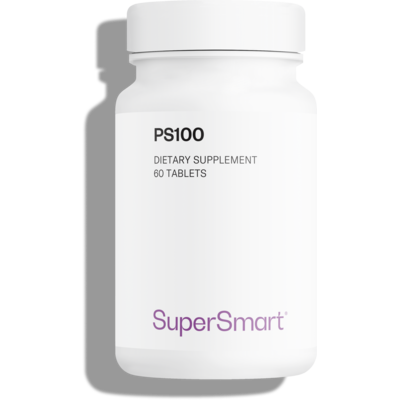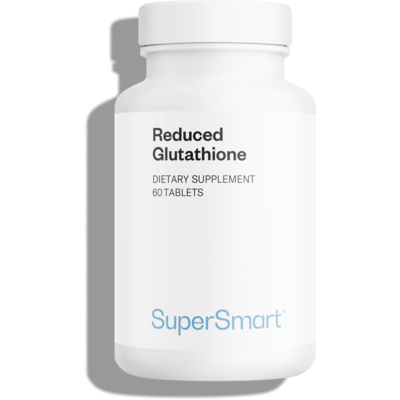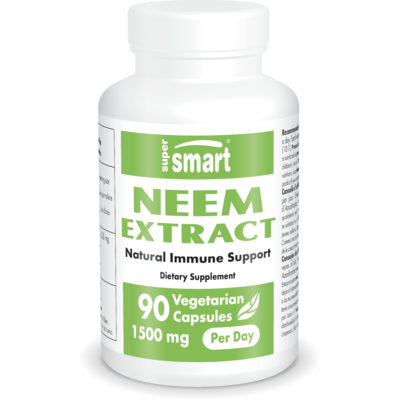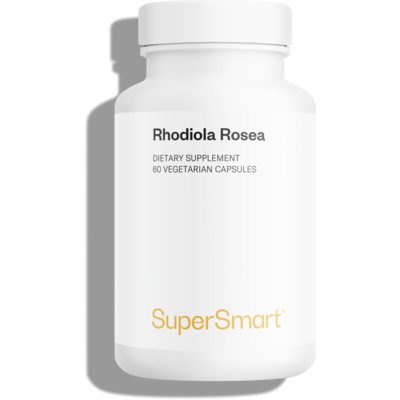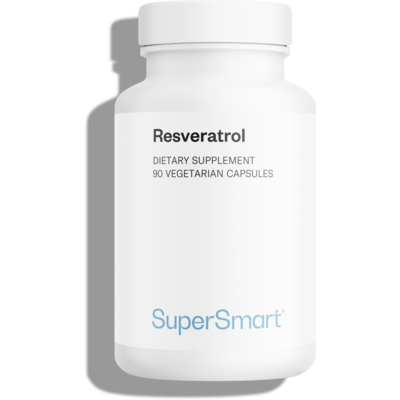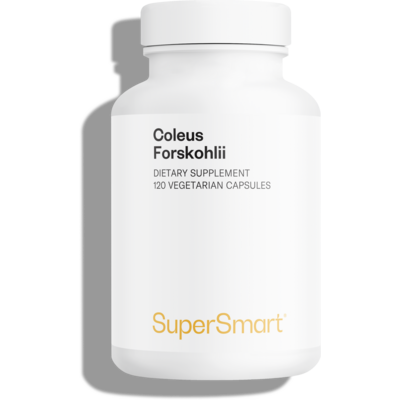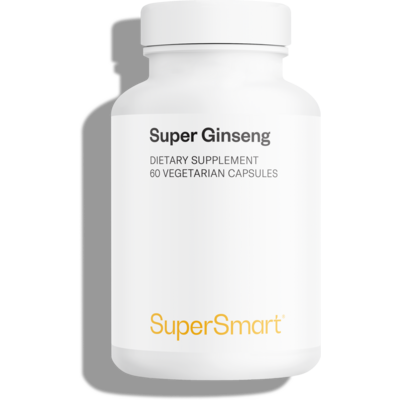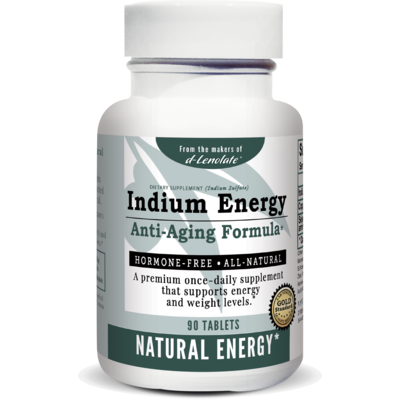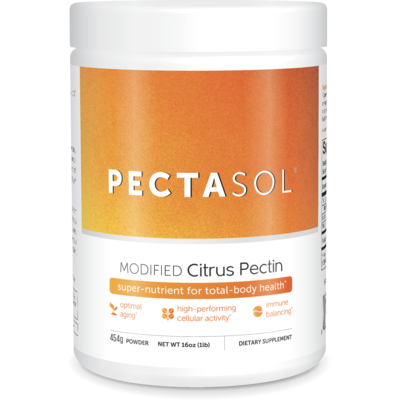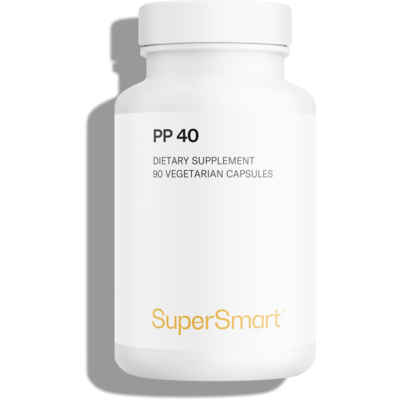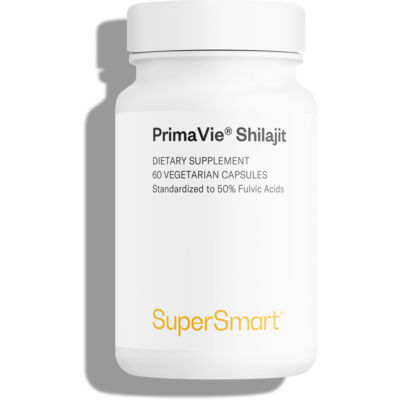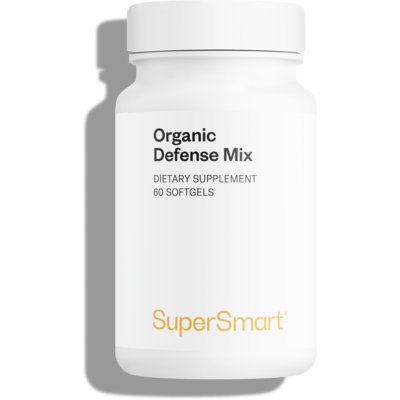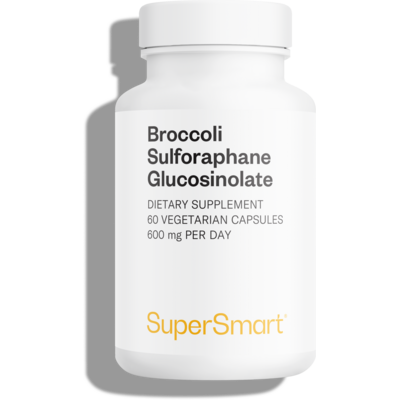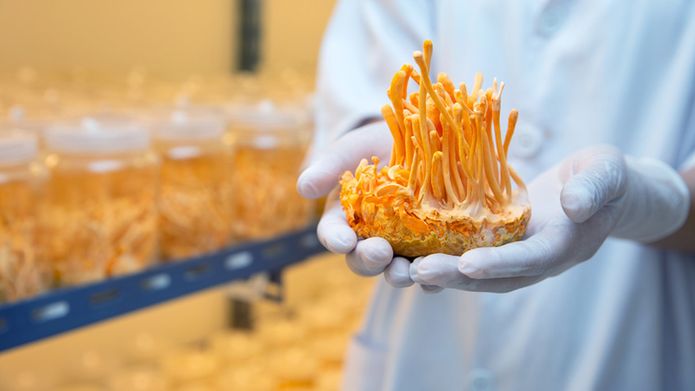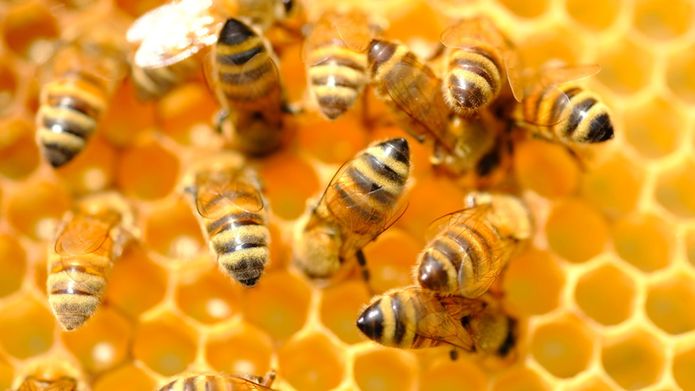Create Your Offer
Organic MycoComplex is an exceptional formulation containing extracts of seven medicinal mushrooms (Inonotus obliquus, Coriolus versicolor, Cordyceps militaris, Ganoderma lucidum, Agaricus brasiliensis, Lentinula edodes, and Grifola frondosa), with a guaranteed concentration of at least 30% polysaccharides and 0.7% triterpenes, now available to buy at SuperSmart.
“Mushrooms are miniature pharmaceutical factories, and of the thousands of mushroom species in nature, our ancestors and modern scientists have identified several dozen that have a unique combination of talents that improve our health“. – Paul Stamets, leading American mycologist and member of the editorial board of The International Journal of Medicinal Mushrooms.
SuperSmart has chosen seven of these species for its brand-new nutritional formulation which offers exceptional benefits. Produced using an enzyme mixture and the latest advances in microbiology, Organic MycoComplex optimizes the activity and bioavailability of the best mushroom species available in the field of nutritional supplementation. So you can be among the first to benefit from some of the most promising medicines of the future.
Who is Organic MycoComplex designed for?
This formulation is primarily for people suffering from fatigue, whatever the cause. It is also for those who:
- Wish to benefit from the ‘super-tonic’ and protective effects of mushrooms.
- Want to protect their body using natural substances.
- Are lacking energy.
- Are suffering from various types of pain.
- Have intestinal disorders.
- Have a fragile immune system.
What is in Organic MycoComplex?
Organic MycoComplex contains extracts of seven different organically-grown mushrooms.
Maitake (Grifola frondosa)
Prior to its cultivation in 1979, maitake was known as the dancing mushroom because it is said that those who found it growing wild danced with joy at their discovery. It is a highly-valued mushroom which contains a number of polysaccharides. Among its properties, scientists have shown that it is able to:
- Lower blood glucose levels (1-2).
- Reduce blood pressure.
- Reduce blood cholesterol levels.
- Stimulate the activity of certain immune cells (3).
Active compounds: primarily the polysaccharides beta 1-6-glucans, alpha-glucans, and MZF (Maitake Z-fraction) (4). Studies have shown that these compounds encourage maturation of dendritic cells and help activate various cell effectors such as macrophages, NK cells, T lymphocytes, interleukin-1, and superoxide anion (5). Other studies have demonstrated a blood glucose-lowering effect; by acting on pancreatic hormone receptors, alpha-glucan polysaccharides can increase its sensitivity in cells and improve its resistance in peripheral tissues. They also act against tumors by upregulating expression of a pro-apoptosis gene (BAK-1) (6).
Attention: The extracts do not all have the same proportion of active principles nor the same concentration. This product should not be taken alongside anti-diabetes medication.
Reishi (Ganoderma lucidum)
This 'mushroom of immortality' has enjoyed exceptional renown in Asia for more than 2,000 years. There are references to it in the oldest written Chinese pharmacopeia (dating back to 56BC) and it was probably being used by Asian populations for thousands of years before then.
It is very rarely found growing wild, but cultivation became possible after the 1970s under highly specific laboratory conditions. This was truly liberating given the significance of its therapeutic properties, which include the ability to:
- Lower blood cholesterol levels.
- Stimulate certain immune cells (7).
- Reduce inflammation (8).
- Increase antioxidant capacity (9).
- Protect the liver.
- Combat cell proliferation(10-13).
- Boost the body as a whole and maintain optimal health.
Active compounds: these are primarily beta-glucan polysaccharides and triterpenes. The latter reduces the expression of metalloproteins and prevent cell proliferation by suppressing the expression of Vascular Endothelial Growth Factor (VEGF) and upregulating the expression of connexin 43 (14).
Attention: In traditional Chinese medicine, only the flesh of the mushroom is used (i.e., the cap and the stalk) but several supplement manufacturers use the mycelium, a less expensive part of the mushroom which does not offer the same benefits.
Shiitake (Lentinula edodes)
Used for over 2,000 years for its medicinal properties, shiitake is probably the most widely-studied mushroom. It helps:
- Reduce levels of LDL cholesterol transporters (15).
- Boost the immune system against infections (16).
- Promote healthy arteries.
Active compounds: its properties come from two compounds in particular, lentinan (1-3 beta-D-glucan) (17) and eritadenine. These compounds do not have a direct cytotoxic effect on tumors but they modify the body’s biological response. Increases have thus been observed in secretion of interleukin (IL-2) and additional activation of macrophages.
Royal sun mushroom (Agaricus brasiliensis)
Native to Brazil, but also widely-found in Asia, the royal sun mushroom is highly valued for its delicious, almond-flavored flesh. It also offers significant benefits:
- It supports liver function (21).
- It improves resistance to the blood-sugar regulating hormone (22-24).
- It reduces blood glucose levels.
- It reduces blood cholesterol levels (25).
- It has an estrogen-like effect.
Active compounds: brefeldin A, ergosterol (the primary constituent), blazeispirol A (produced by fermentation of the mushroom), agaritine, and polysaccharides. These compounds activate a number of molecular cascades that lead to apoptosis, the programd death of abnormal cells. They also play a role both in activating NK cells, normal cell signaling and supporting damaged blood vessels (26).
Chaga (Inonotus obliquus)
Unlikely as it might seem, this increasingly popular mushroom is nothing more than a parasite of the birch tree. Yet, behind this inauspicious exterior lies a powerful health-boosting mushroom with a delicate flavor. With blood glucose-lowering properties, it has been used for centuries in Asia and Russia to calm inflammation and optimize digestion. Interest in chaga intensified dramatically when in 2011, a team of scientists from Queensland University of Technology discovered that in certain cases, it could reverse tumors in rodents, with no apparent side effects. Researchers are currently investigating its potential to:
- Boost antioxidant capacity (27).
- Reduce inflammation and fatigue (28).
- Relieve pain (29).
- Stimulate the immune system (30).
Active compounds: inotodiols (triterpenoids), oxalic acid, gallic acid, protocatechuic acid, and p-hydroxybenzoic acid. Terpenoids are responsible for the anti-diabetes effects by inhibiting alpha-glucosidase, while the anti-fatigue effects come more from polysaccharides which increase glycogen in the muscles and liver, while reducing levels of nitrogen in urea and restoring those of endogenous antioxidants (glutathione, superoxide dismutase) (33). Its pain-relieving properties are due to inhibition of nitric oxide synthase (iNOS) and cyclooxygenase-2 (COX-2). Last but not least, its anti-proliferative properties are the result of modulated expression of caspase apoptosis-triggers by lignin derivatives.
Attention: its use is contra-indicated in type 1 diabetics, those with coagulation disorders and those who have had a transplant.
Organic MycoComplex also contains extracts of polyporus versicolor and cordyceps (effective at stimulating poor sexual function and restoring energy (34)), as well as selenium, prebiotic fructo-oligosaccharides, and an extract of ginseng, the essential plant-source aid for stimulating the immune system and fighting fatigue.
What are the benefits of taking Organic MycoComplex?
Europeans and North Americans tend to be wary of mushrooms because of their potential toxicity. But they are missing out. East Asian populations have always regarded them as an essential part of their pharmacopeia, while the scientific community continues to link them to an increasing number of therapeutic benefits. It now seems that mushrooms’ range of activity is huge; they are in a therapeutic class of their own, with an almost unrivalled wealth of nutritional virtues.
Organic MycoComplex addresses several areas of health:
Gut health. Mushrooms contain a large amount of insoluble dietary fibre which increases the weight and volume of stools, facilitating their elimination from the body and preventing constipation. They also contain non-digestible sugars which nourish 'friendly' bacteria in the gut and bowel, helping to strengthen the intestinal barrier and reduce systemic inflammation.
The field of oncology. Two types of compound are responsible for the anti-tumor properties of mushrooms: polysaccharides and lectins. Polysaccharides are long chains of simple sugars. They induce production of cytokines such as IL-2 which activate the proliferation of a number of immune cells and boost the destruction of foreign elements. Lectins are carbohydrate-binding proteins which induce apoptosis in abnormal cells including tumor cells.
The field of cardiology. As a result of its various ganoderma, coumarin, and polysaccharide compounds, mushrooms help lower cholesterol and triglyceride levels, two factors associated with cardiovascular problems.
The immune system. This is mushrooms’ strongest suit. Most of them have properties that strengthen weakened immune systems, particularly as a result of radiotherapy or infections. The polysaccharide compounds increase numbers of macrophages, NK cells and cytotoxic T lymphocytes.
Activity against free radicals. Mushrooms have certain antioxidant properties and thus help combat the oxidative stress involved in many health problems. When the body is exposed to high levels of free radicals, normal detoxification processes are unable to function properly which leads to a state of pathological imbalance.
Stress. Like ginseng and ashwagandha, mushrooms are considered to be adaptogens, helping to restore and balance various parameters associated with stress. They act rather like spark plugs, improving the body’s adaptation to stress and acting as an energy potentiator of the adrenal system.
Did you know? Mushrooms, which are known scientifically as Eumycetes, are phylogenetically closer to us than to plants.
Five reasons to choose Organic MycoComplex
Here are 5 reasons to consume our Organic MycoComplex supplement:
- Mushrooms are hard to identify and keep fresh. We would all like to benefit from the medicinal properties of mushrooms, but these days, it is a risky practice; knowledge is no longer being handed down from one generation to the next and it is easy to confuse an edible species with a poisonous one. In addition, many mushrooms decompose rapidly after being picked and produce mycotoxins which cause botulism. If they are consumed after being stored in unsuitable conditions (they should be hermetically sealed and kept refrigerated below 39.2°F), it can result in serious food poisoning with no detectable changes in their appearance, taste or smell.
- Encapsulating them ensures maximum efficacy. Mushrooms contain many health-beneficial compounds but they also have a high water content which dilutes these compounds. When dehydrated and encapsulated, the mushrooms are converted into dry matter which is exceptionally concentrated in active principles. Loose powder is more economical but once opened, it quickly oxidizes, which makes it less effective over time. In contrast, capsules offer stable active principles and are precisely dosed. They are easy to use, practical and safe.
- One of the most promising areas of medicine. Metabolically rich, mushrooms offer huge pharmacological potential, with considerable research being conducted in this field. The areas of medicine in which they are used are growing all the time: antibiotic therapy, cardiology, haematology, oncology, parasitology...
- A formulation with guaranteed active principles. Organic Mycocomplex is produced from the carpophores in mushrooms, the part with the highest therapeutic value. Many manufacturers use mycelium for their dietary supplements, but this underground part is composed of strands and is much lower in beneficial substances.
- Natural, organic excipients. Organic Mycocomplex capsules are free from lactose, gluten, gelatine, soy, flavorings, pesticides, fungicides, artificial colors, allergens, GMO substances, and animal products. The mushrooms used are grown in line with organic farming specifications. Their cellular compounds, including polysaccharides and triterpenes, are extracted using a unique enzymatic formula which initiates fermentation of chitin walls. Solvents are then added, primarily water, but also alcohol when appropriate.
Many experts agree that mushrooms currently represent one of the most promising areas of medicine, and that their huge potential is only just starting to be scientifically evaluated. With its exceptional range of benefits, Organic MycoComplex has more than earned its place in the SuperSmart catalogue.
Buy Organic MycoComplex to fight fatigue and boost the immune system.
WARNINGS
Do not exceed the recommended daily dose. This product is a nutritional supplement and should not be used as a substitute for a varied and balanced diet or a healthy lifestyle.
STORAGE
Store in a cool, dry place away from direct sunlight, heat, and humidity. Keep out of reach of children.
PREGNANCY AND MEDICAL CONDITIONS
If you are pregnant, breastfeeding, or have any medical conditions, consult your healthcare provider before using this product.
SUPPLEMENT INTERACTIONS
Consult your healthcare provider before use, especially if you are taking any medications or other supplements as there may be potential interactions.
Need Help?
Phone Number
+1 (786) 522-3907
From 9 am to 6 pm (EST)
Email Address
You May Also Like

